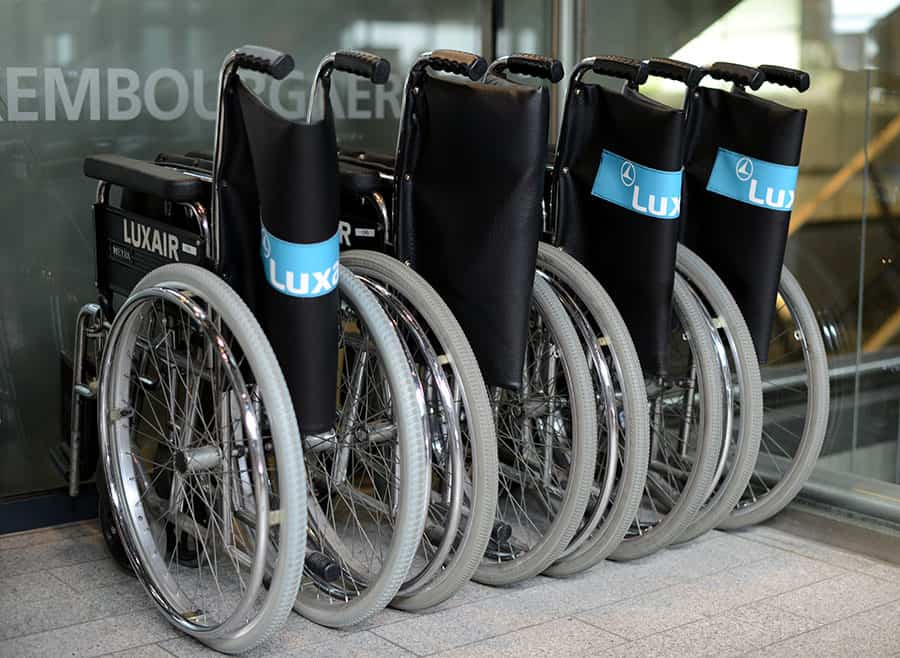Decline in disabled passengers taking to the skies could slow travel-orientated product demand

Able Move, manufacturer of the aircraft wheelchair transfer aid the easyTravelseat, has recently conducted a survey to discover passengers with reduced mobility (PRM) willingness to fly in the wake of the coronavirus pandemic.
Prior to the coronavirus, the number of disabled passengers taking the skies was soaring, leading to a growth in the lightweight, travel-orientated segment of the mobility market catering for holidaymakers.
In 2018, an estimated 3.2m disabled passengers flew through UK airports, growing to a record 3.7m in 2019, according to the UK Civil Aviation Authority (CAA).
As the pandemic swept across the world, air travel came to a sudden and abrupt stop as countries closed their borders and lockdown orders were issued in a bid to halt the virus’ spread during March, April and May.
With lockdown easements now on the cards, people’s thoughts are returning to the prospects of holidays, however, research carried out by IATA has suggested that a return to air travel is predicted to be slow for the remainder of 2020.
A consensus carried out by the organisation in April revealed 40 per cent of travellers would wait six months or more before travelling by aeroplane again.
Aiming to gain a better understanding of disabled passengers’ views specifically regarding the aviation sector, sling and seat supplier Able Move carried out its own survey, asking hundreds of people with mobility needs in May to discover their thoughts on air travel.
Out of the 330 PRM respondents from across Europe, America, Asia, Australia/New Zealand and Africa, one in three people indicated that they will not travel by air until a coronavirus vaccine is available.
Among the key causes of concerns outlined by disabled passengers were a lack of clean circulated air inside the cabin, social distancing not being followed at airports and planes, as well as inadequate seat provision and the risk of falling ill abroad.
52 per cent of disabled travellers said they would wait a minimum of six to 12 months before taking to the skies again and a further 28 per cent responded that they were unsure.
20 per cent, however, reported being eager to jet-set again and said they would board a plane within a month or whenever was deemed appropriate.
For mobility retailers, the research suggests that demand for mobility products aimed at vacationers may also be slow to return as people push back travel plans.
Emphasising that an optimistic outlook could still see two in every three disabled passengers willing to fly, Able Move says that airlines and airports will “need to reassure disabled passengers distinctly of their strict procedures and processes that have been implemented to reduce these heightened, but of course expected concerns.”
Failing to address such concerns could see PRM numbers drop consistently for the foreseeable future by up to 50 to 75 per cent, added the manufacturer.
https://thiis.co.uk/decline-in-disabled-passengers-taking-to-the-skies-could-slow-travel-orientated-product-demand/https://thiis.co.uk/wp-content/uploads/2020/05/airport-travel.jpghttps://thiis.co.uk/wp-content/uploads/2020/05/airport-travel-150x150.jpgCoronavirus NewsCOVID-19 Sector NewsNewsroomReports & ResearchRetailer NewsSector NewsSupplier NewsTrade NewsAble Move, manufacturer of the aircraft wheelchair transfer aid the easyTravelseat, has recently conducted a survey to discover passengers with reduced mobility (PRM) willingness to fly in the wake of the coronavirus pandemic. Prior to the coronavirus, the number of disabled passengers taking the skies was soaring, leading to a...Calvin BarnettCalvin Barnettcalvin.barnett@bhta.comAuthorTHIIS Magazine

